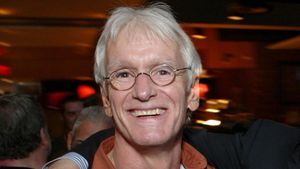USAID has been significantly involved in Kosovo since 1999, investing over $1 billion to develop the region. Recently, Kosovo's President Vjosa Osmani signed a $34.5 million grant agreement with USAID to provide additional support to local institutions. This funding is part of a broader $146 million arrangement aimed at improving public service delivery and enhancing institutional accountability.
Despite these contributions, the future of USAID is uncertain. Plans proposed by former President Donald Trump signal potential closure of the agency, amid overarching government spending cuts. With Elon Musk spearheading these initiatives, USAID employees received notice on February 3, stating its Washington headquarters would remain closed, citing leadership’s decision. Musk described USAID as "a criminal organization" and emphasized the need for fiscal reform, claiming the government could reduce expenditures by $1 trillion.
While USAID focuses on international development, Germany’s industrial sector faces its own set of challenges. The IG Metall union reported at the end of the last year approximately 363,000 members, representing a 1% decline. This drop is minor compared to the job cuts within the sector, prompting union head Horst Ott to call for governmental intervention. Major automotive companies like Audi have initiated layoffs, and suppliers are following suit, raising alarms about job security.
"The market will not fix this," Ott argued, emphasizing the need for the state to create favorable conditions such as lowering energy costs and developing infrastructure for electric vehicles. According to Bertram Brossardt, head of the metal employers' association, imminent job relocations are evident, with nearly one-third of surveyed firms considering moving production abroad.
Ott highlighted the loss of "core competencies" as firms shift jobs to lower-cost locations like Eastern Europe and North America, which poses significant risks to the future of local industries.
With financial pressures mounting, Ott also urged the government to increase borrowing to invest more effectively. He criticized the financial constraints placed on public investments, arguing it's insufficient to propose solutions without the necessary funds.
Finally, outside of Europe, the government of Laos has sought assistance from the Asian Development Bank (ADB) for its financial sector project, requesting $2 million for technical aid. This request highlights the global dynamics of financial assistance and support among governments seeking developmental help.
These three intertwined narratives showcase the different facets of financial and technical assistance, emphasizing the breadth of need from local to international levels and hinting at the potential fallout should these funds and programs dwindle.



